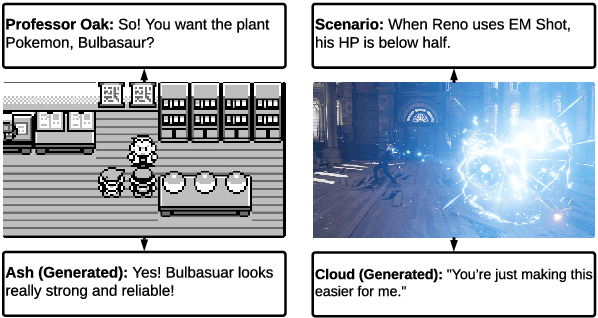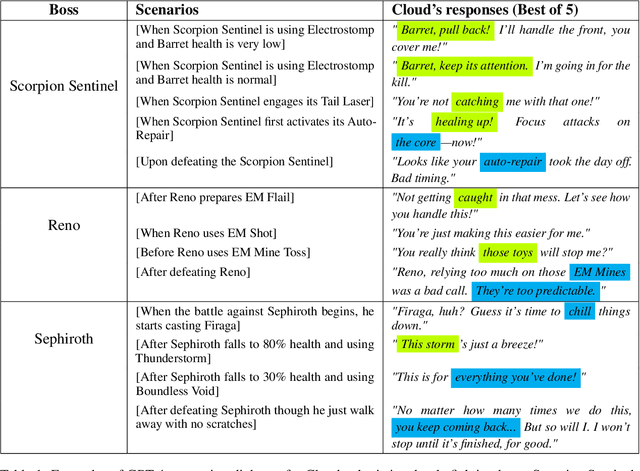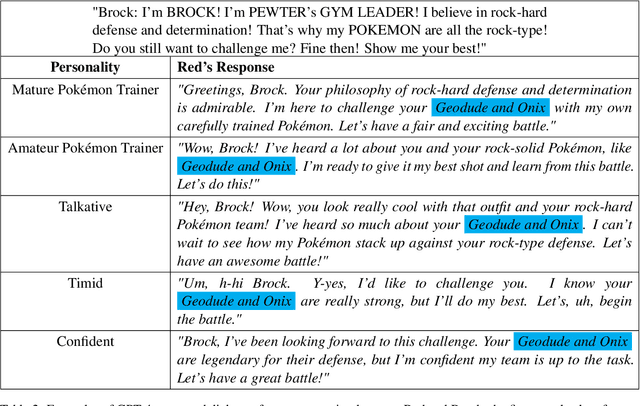What if Red Can Talk? Dynamic Dialogue Generation Using Large Language Models
Paper and Code
Jul 29, 2024



Role-playing games (RPGs) provide players with a rich, interactive world to explore. Dialogue serves as the primary means of communication between developers and players, manifesting in various forms such as guides, NPC interactions, and storytelling. While most games rely on written scripts to define the main story and character personalities, player immersion can be significantly enhanced through casual interactions between characters. With the advent of large language models (LLMs), we introduce a dialogue filler framework that utilizes LLMs enhanced by knowledge graphs to generate dynamic and contextually appropriate character interactions. We test this framework within the environments of Final Fantasy VII Remake and Pokemon, providing qualitative and quantitative evidence that demonstrates GPT-4's capability to act with defined personalities and generate dialogue. However, some flaws remain, such as GPT-4 being overly positive or more subtle personalities, such as maturity, tend to be of lower quality compared to more overt traits like timidity. This study aims to assist developers in crafting more nuanced filler dialogues, thereby enriching player immersion and enhancing the overall RPG experience.
 Add to Chrome
Add to Chrome Add to Firefox
Add to Firefox Add to Edge
Add to Edge